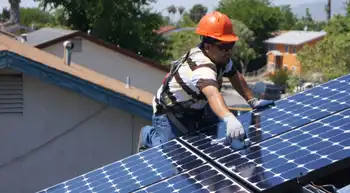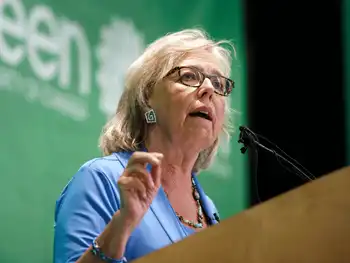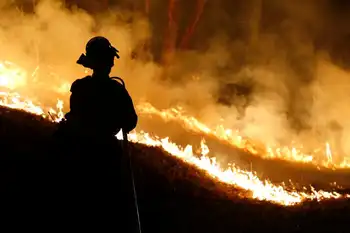US utilities want FERC to take secondary audit role
Officials with the Edison Electric Institute, an influential industry lobbying group, met with FERC Chairman Pat Wood this week to press the agency to take a supporting role and allow current industry audits to continue.
"We're talking about an independent audit with FERC participating ... rather than have the commission trying to do this on their own," David Owens, an executive vice president with the institute, told Reuters.
FERC is trying to determine whether it has the authority to begin conducting its own reliability audits of the U.S. grid.
The agency is concerned that parts of it may still be vulnerable to the lapses on Aug. 14 that left 50 million people without power. Utility officials, including executives with TXU Corp. , Pepco Holdings Inc. and Southern Co. , proposed what Owens said is a "very aggressive auditing plan" that would see 80 percent of the nation's grid inspected by this summer.
A sweeping energy bill stalled in the U.S. Senate would require FERC to take action against companies that violate reliability rules set by the North American Electric Reliability Council (NERC), an industry-funded board that sets voluntary standards. FERC is now hiring about 30 grid experts that could conduct its own audits of utilities' grid reliability, after getting $5 million in extra government funds earmarked for reliability.
"The commission is considering what authority it has to bring to bear in this area," FERC spokesman Bryan Lee said.
Lee declined to say whether EEI's proposal was adequate, but said the agency "welcomes a stepped-up initiative to audit compliance of the NERC rules."
Under the industry proposal, FERC investigators would be invited to participate in the audits, which could focus on readiness of personnel in utility control rooms and the ability of grid equipment to deal with peak system conditions, Owens said. The plan gives FERC "a significant oversight role," he said.
Last year, a U.S.-Canadian task force found the Aug. 14 blackout began when overgrown trees shorted out three major transmission lines owned by Ohio-based FirstEnergy Corp..
Investigators found several NERC rule violations by FirstEnergy and the Midwest grid operator, but the industry group cannot levy fines or penalties.
Related News

Energy freedom and solar’s strategy for the South
WASHINGTON - The South Carolina House has approved the latest version of the Energy Freedom Act, a bill that overhauls the state’s electricity policies, including lifting the net metering cap and reforming PURPA implementation and utility planning processes in a way that advocates say levels the playing field for solar at all scales.
With Governor Henry McMaster (R) expected to sign the bill shortly, this is a major coup not just for solar in the state, but the region. This is particularly notable given the struggle that solar has had just to gain footing in many parts of the South, which…




